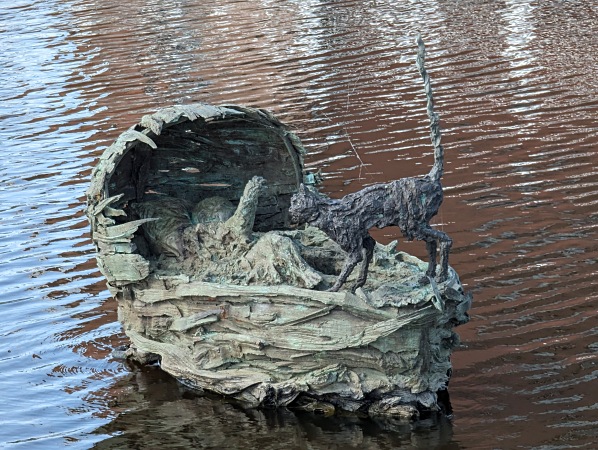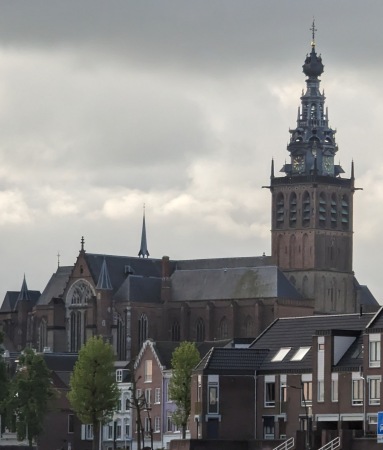
And a bit later this unexpected sight on the riverbank.
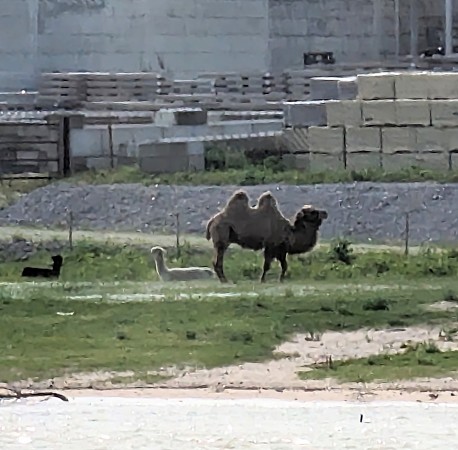
We passed the Dordrecht, Netherlands waterfront.

Across the river from today's destination was the brick water tower in Krimpen aan de Lek
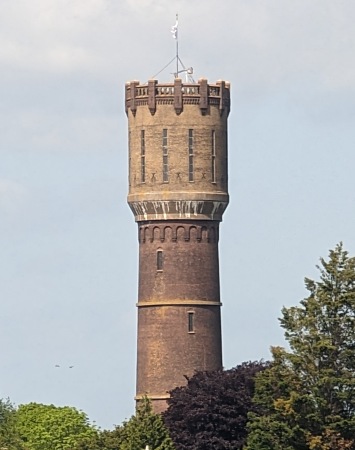
Our first stop in the Netherlands, Kinderdjik.
We got on a little canal boat for a tour through some of the canals of the town.
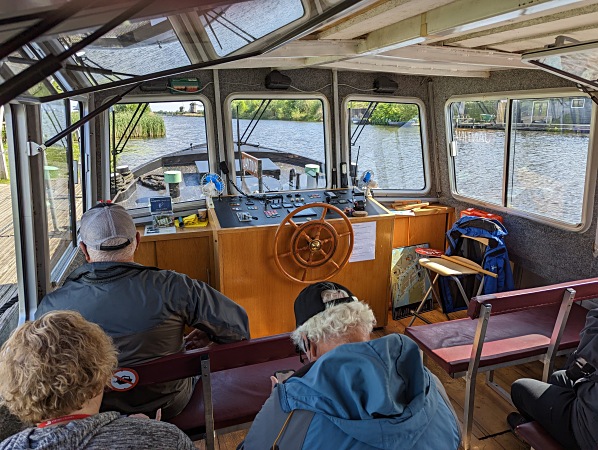
The site of working windmills that pump water to the river from the canals that drain the land .
That includes several that are also museums.
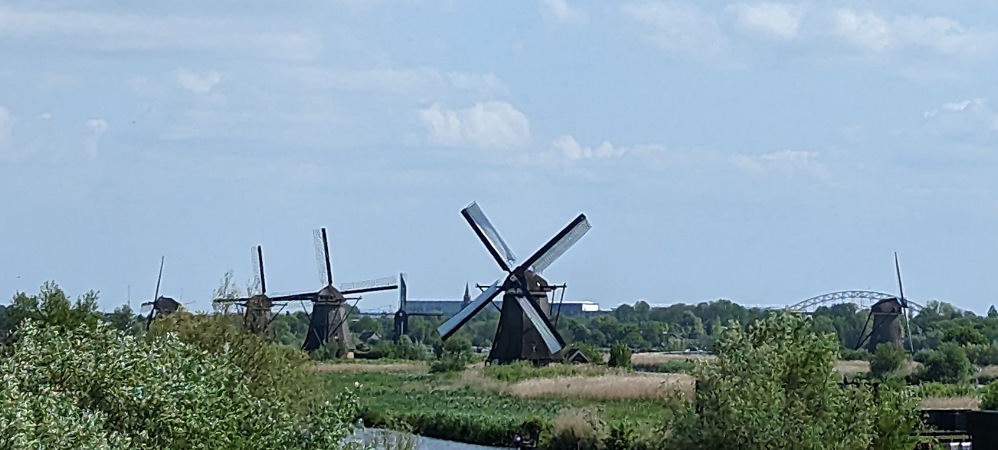
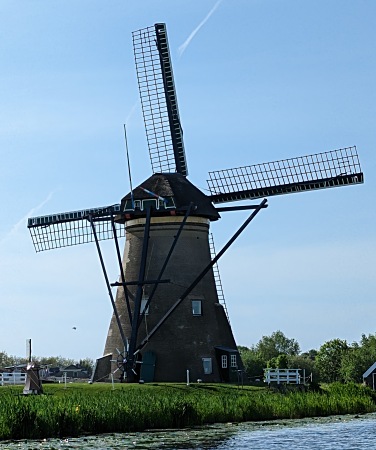

The flags on this one indicate a celebration, a wedding, or birth or something similar.
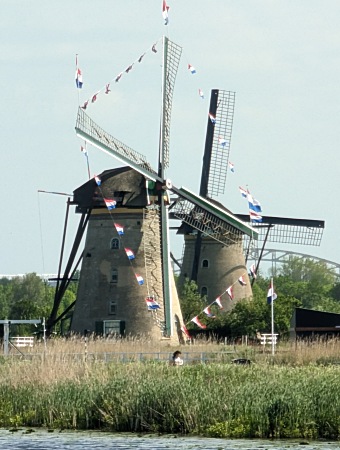
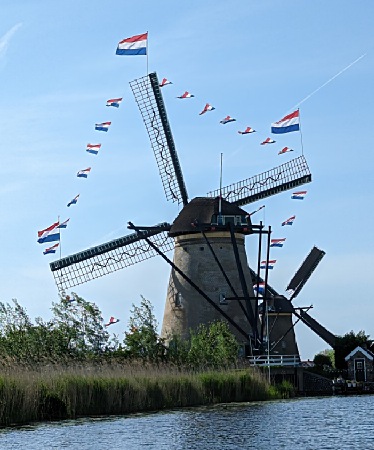
There are some pumping stations that aren't as picturesque,
This is one.
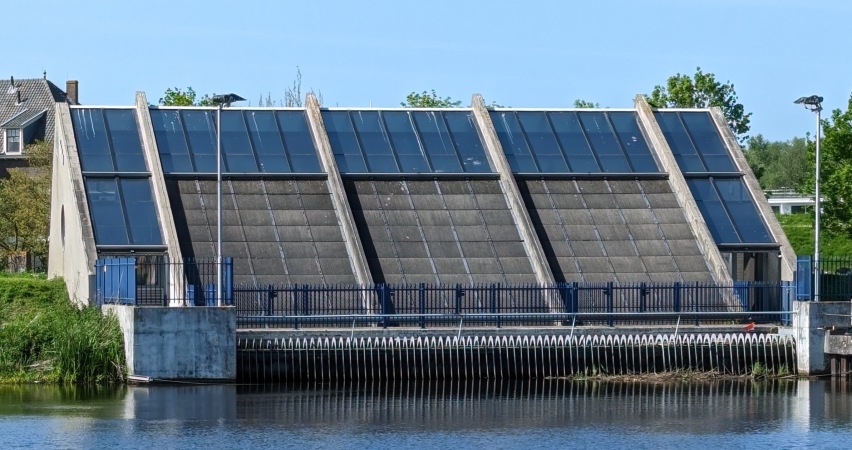
Coming in to a windmill/museum/home.
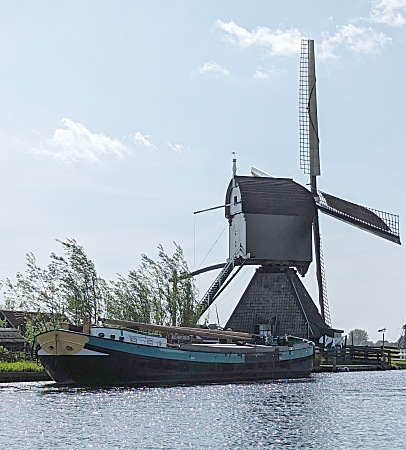
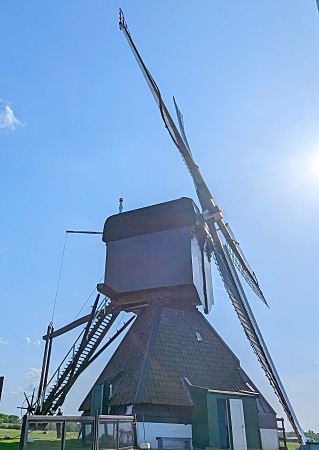
Our guide, at the lower left, lives here and is responsible for the maintenance of the windmill as well as dealing with flocks of tourists.
The cap/cabin where the blades of the windmill are mounted must be able to be turned to face the wind.
The stairs and beam on the back provide support against the force of the wind.
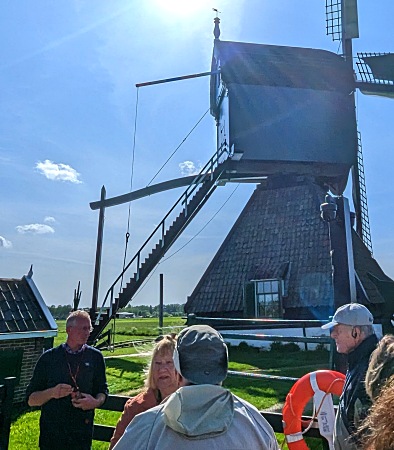
Here is the mechanism used to turn the cap.
Use the big windlass to pull in or pay out the chain to get the most power.
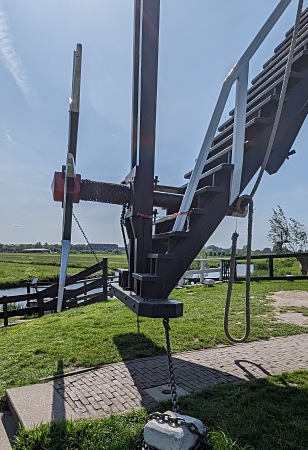
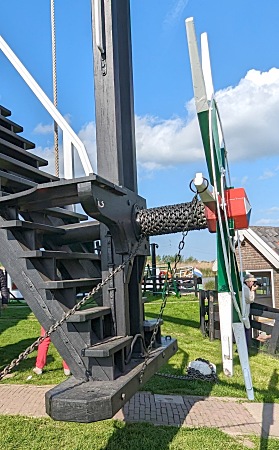
Yep, wooden shoes.
He said they are comfortable but don't plan on breaking them in.
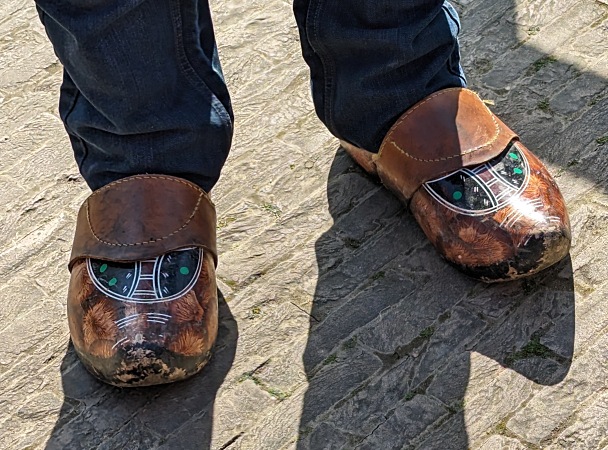
Here our host is showing how he applies the brake to stop the windmill for maintenance or when it isn't needed.
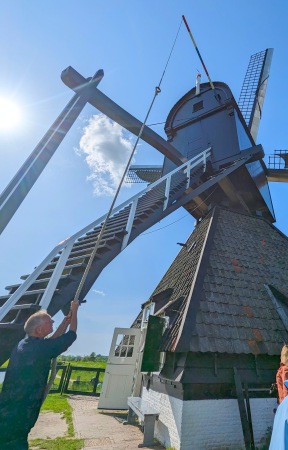
The sails are bigger than we had thought.
The fabric covering them can be adjusted for changes in wind speed.
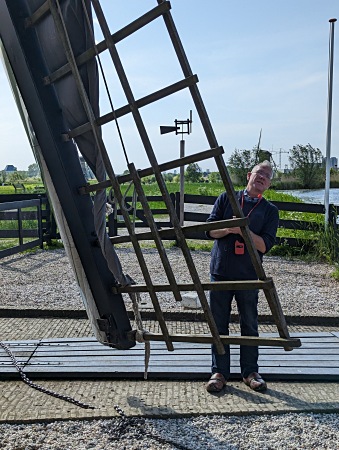
A "modern" improvement is aerodynamic fairing on the leading edge of the sails
Modern is a relative term since it has been used for about 100 years and Dutch windmills have been around for more than 800.
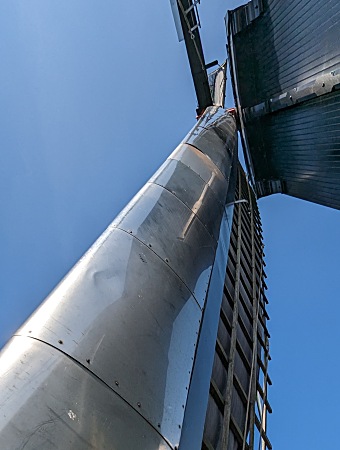
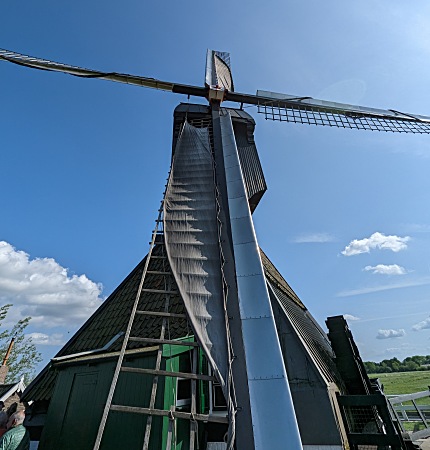
This mill pumps water up a few feet from one canal to another and from there it will be pumped into the Rhine.
This wheel does the first lift.
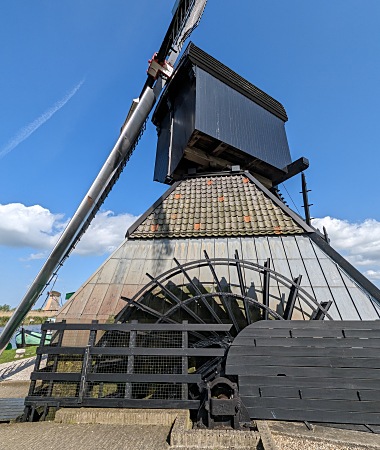
Inside we were impressed by the size of the beams.
The size was necessary to resist the force of the wind over hundreds of years.
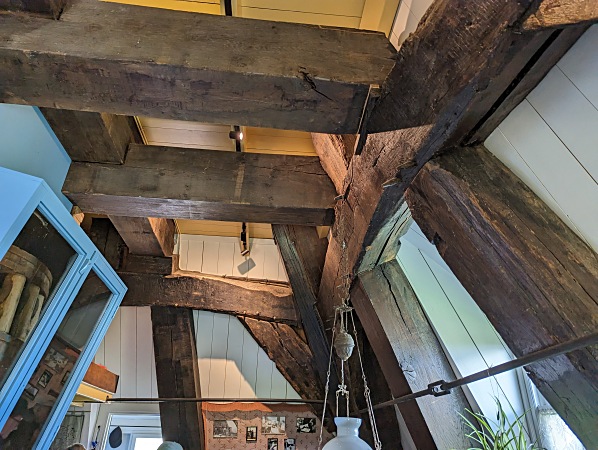
There wasn't much space inside but it had everything needed.
Fuel for the stove looked like it was scrap that had been cut off when making wooden shoes.
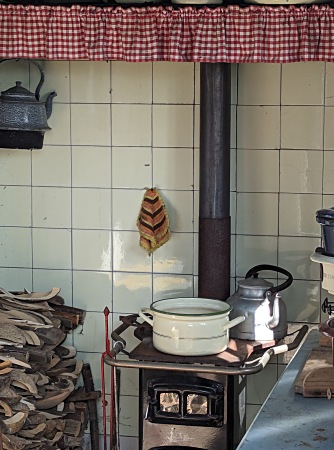
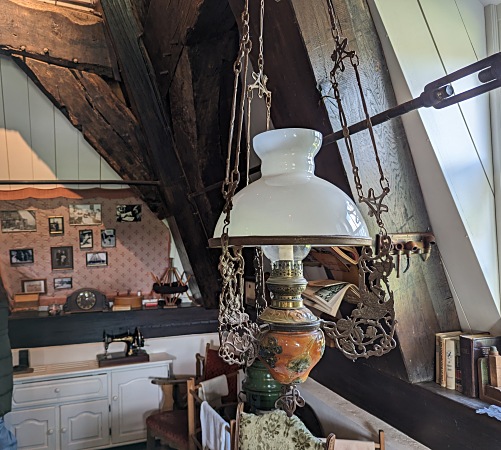
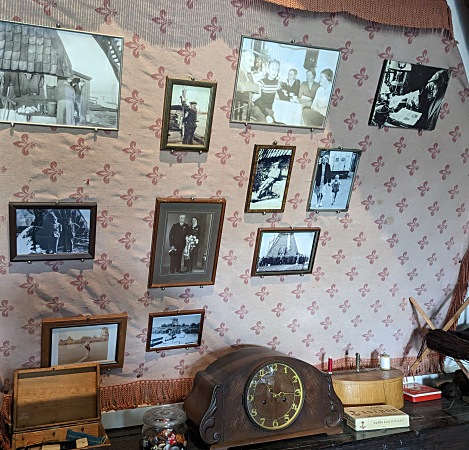
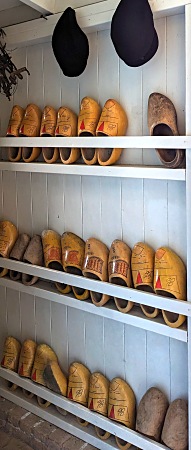
The crib was tucked in where it was convenient for mom.
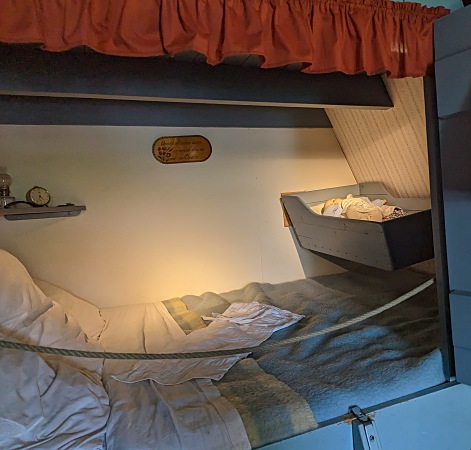
The wooden gears were behind glass doors to protect occupants and for some noise control
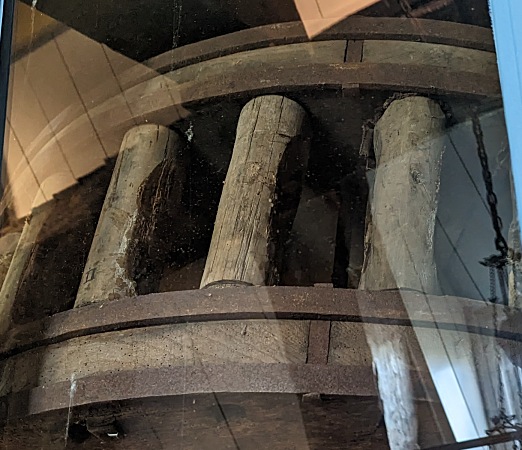
Outside was a small orchard and a goat.
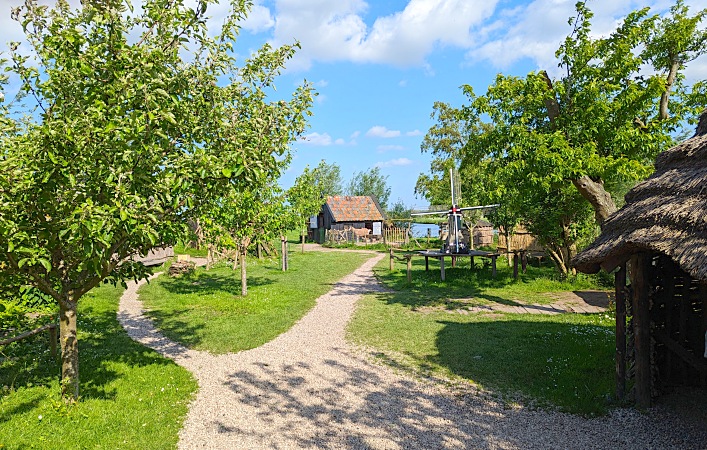
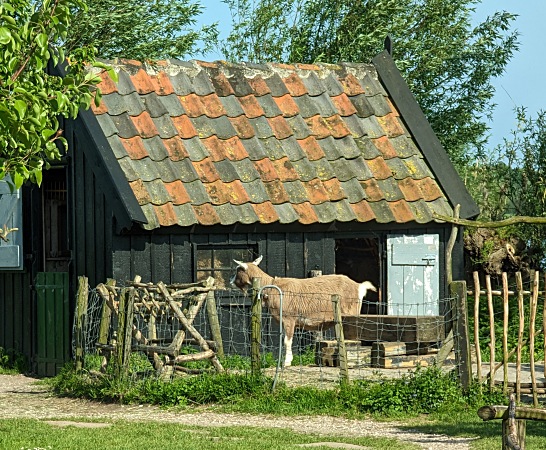
Back on board the tourists found that a pirate had taken command but all the tourists were able to disembark safely.
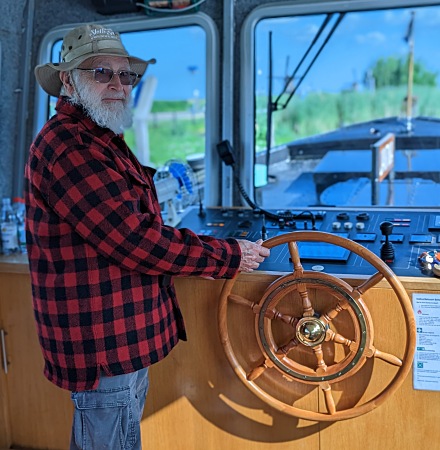
On the night of November 18, 1421 a storm broke dikes and caused one of the worst floods in Dutch history.
A folk tale tells of the survivors seeing a basket from which the cry of a child could be heard, floating along a surviving dike.
The bobbing cradle was balanced by a cat, jumping back and forth to keep the basket from tipping over and thus keeping the baby alive.
This sculpture commemorates the tale.
